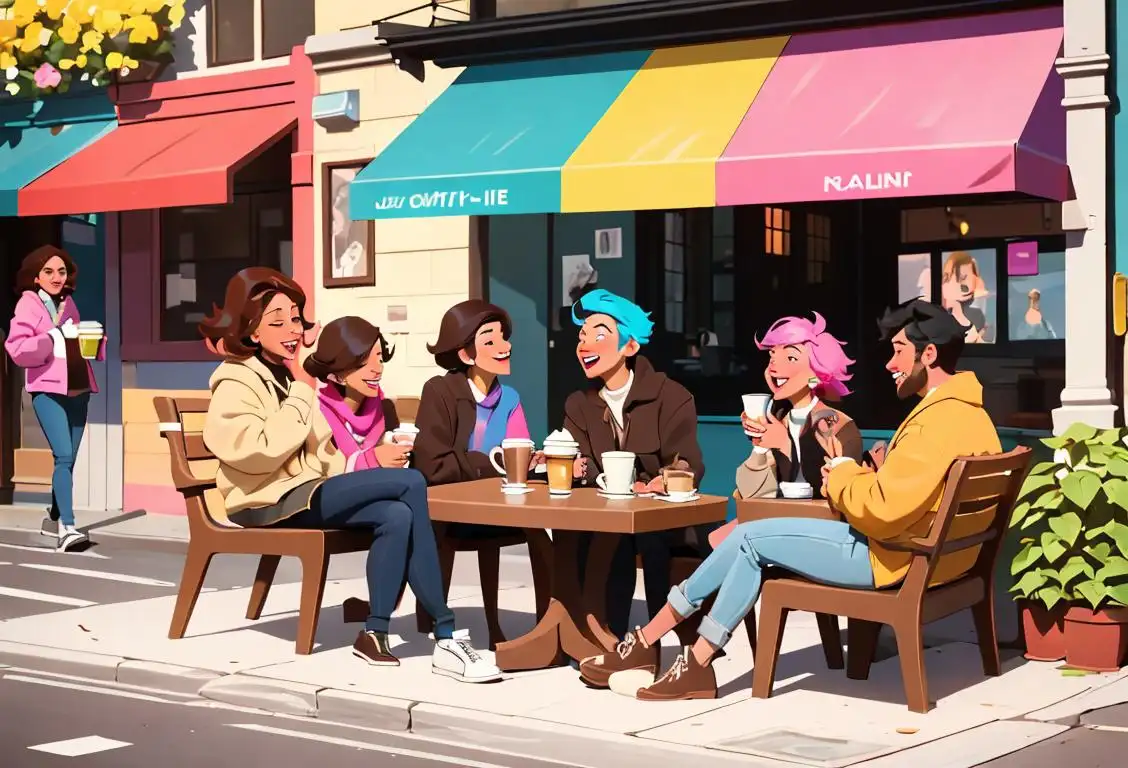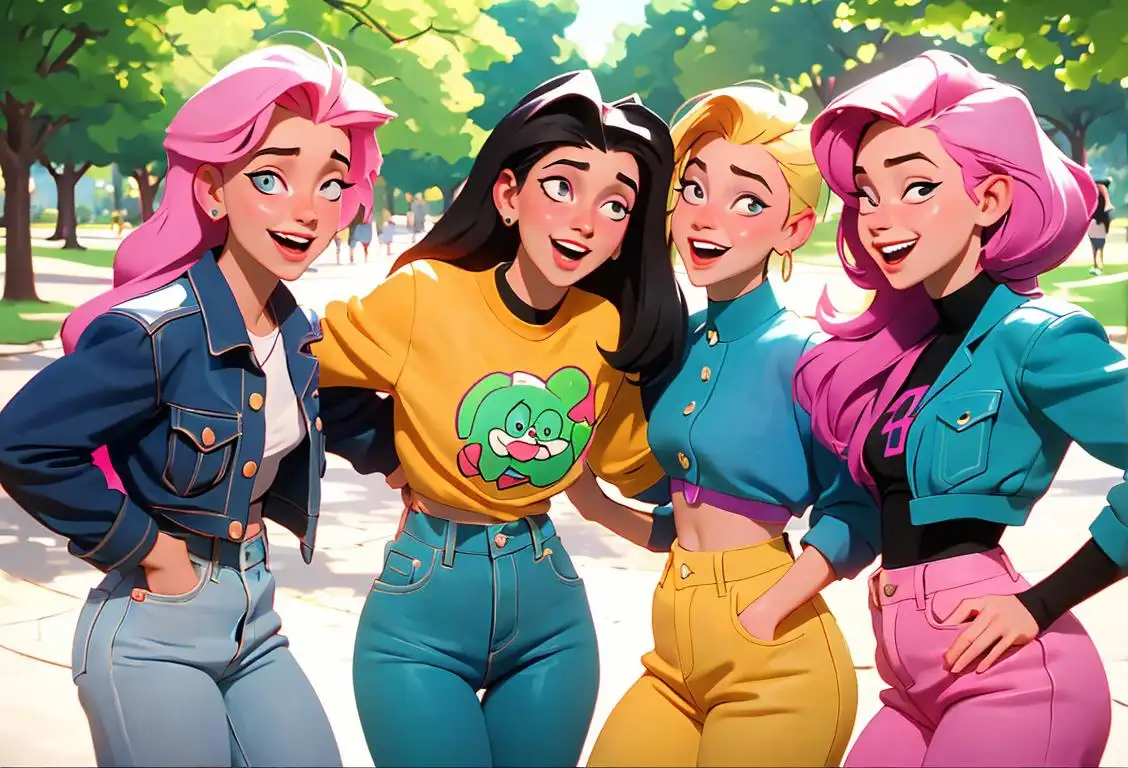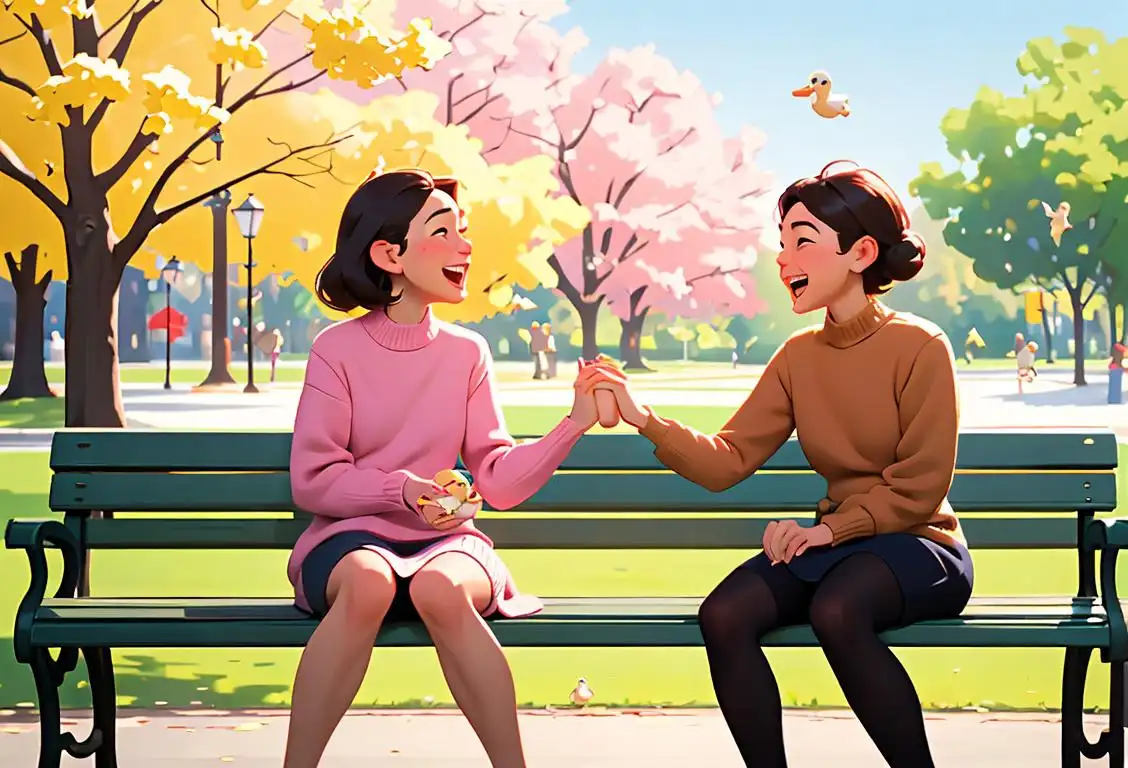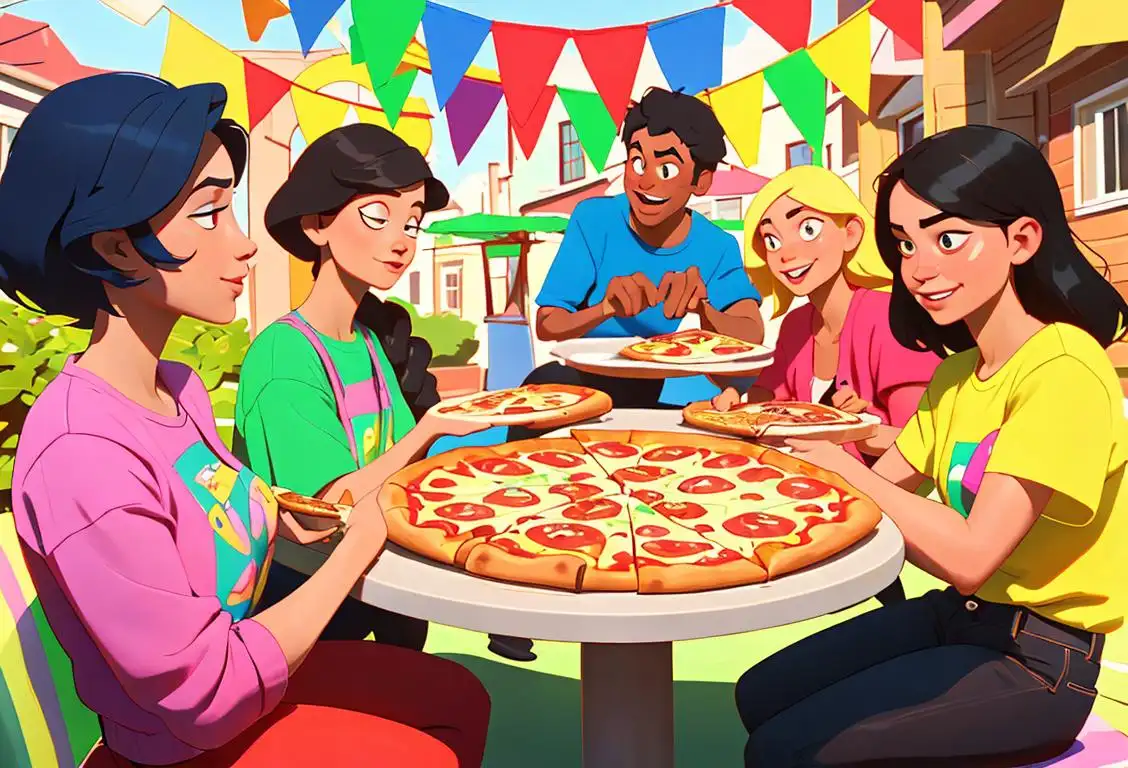National Fake Friends Day

Hear ye, hear ye! Have you ever tried to weed out your 'fake friends' from your friend circle? Seems tough? Don't worry, there's a day for it, and it's more popular than you think! Welcome to National Fake Friends Day, a day that definitely requires a double take.
When is Fake Friends Day?
It's national fake friends day on the 11th June.
A Brief History
Despair not dear reader, because despite National Fake Friends Day sounding like a day of treachery, it's about empowering ourselves! With 36902 mentions of National Fake Friends Day online, it was most buzzy on the 11th June 2020, rightly demanding its spot on the social calendar.
The Real Deal about Fake Friends
On National Fake Friends Day, you don't actually cast out all the imposters like a medieval witch hunt. Take this day as more of a reflection on the people in your life, realising the importance of authentic friendships and showing your appreciation for the chums who've always got your back.
So how to Celebrate?
Perhaps, you could kick-start a deep convo with your bestie over a good ol' cup of coffee, or compile all your favourite group photos and reminisce about the good times. Because let's face it, nothing neutralizes the sting of 'fake friends' as celebrating the real ones!
Unfriend Button at Hand?
Not all 'unfriend' clicks have to be bitter; some could be just purely cathartic. Use this day to not just literally 'unfriend' but also emotionally untie yourself from toxic friendships. National Fake Friends Day could act as your annual friendship audit!
History behind the term 'Fake Friends'
2000
The Rise of Social Media
The term 'fake friends' first emerged in the early 2000s with the rise of social media platforms. Websites like Myspace and later Facebook allowed people to connect and communicate with others online. As social media usage grew, so did the prevalence of superficial or insincere friendships, leading to the coining of the term 'fake friends'.
2004
Friendship Parameters and the Illusion of Connection
In 2004, Facebook was launched, marking a significant milestone in social media history. Facebook introduced the concept of 'friends' as a way to define your social connections on the platform. However, as the number of online friends increased, the quality of those friendships often decreased. Many friendships became superficial, leading to the popularization of the term 'fake friends'. People realized that the number of online connections did not necessarily correlate with genuine friendships.
2010
Focus on Online Persona and Validation
With the proliferation of social media, individuals began to curate their online personas carefully. People would often present an idealized version of themselves, showcasing only the positive aspects of their lives. This focus on projecting a perfect image led to an increasing number of insincere friendships, where individuals only sought validation and social proof. The term 'fake friends' gained popularity as people began to recognize this phenomenon.
2013
Researcher Sherry Turkle Explores Relationships in the Digital Age
In 2013, renowned psychologist and author Sherry Turkle published her book 'Alone Together: Why We Expect More from Technology and Less from Each Other'. The book explored the impact of technology on relationships, highlighting the existence of 'fake friends' in the digital era. Turkle's work brought attention to the idea that increasing virtual connections did not necessarily translate into deeper and more meaningful friendships, contributing to the popularization of the term 'fake friends'.
2021
Continued Relevance and Awareness
In the present day, the term 'fake friends' remains highly relevant. Social media continues to influence the way we form and maintain friendships. As people become more aware of the potential for insincere connections in the digital realm, they are cautious about distinguishing between true friends and mere acquaintances. The term 'fake friends' serves as a reminder to prioritize genuine relationships and foster meaningful connections in an increasingly interconnected world.
Did you know?
Did you know that anthropologists suggest humans have an upper limit on the number of relationships they can maintain which is known as the Dunbar's number? It is a suggested cognitive limit to the number of people with whom one can maintain stable social relationships. So, it's not so bad if we let go a few fake ones, we might be wired that way!Tagged
fun friendship relationships reflectionFirst identified
8th June 2015Most mentioned on
11th June 2020Total mentions
36902Other days
Fake Friends Day
Fake Ass Friends Day
Homeboy Day
Sex Best Friend Day
Make A Friend Day
Bestfriends Day
Plant A Flower Day
Nurses Day
Have Sex Day
Pizza Party Day








